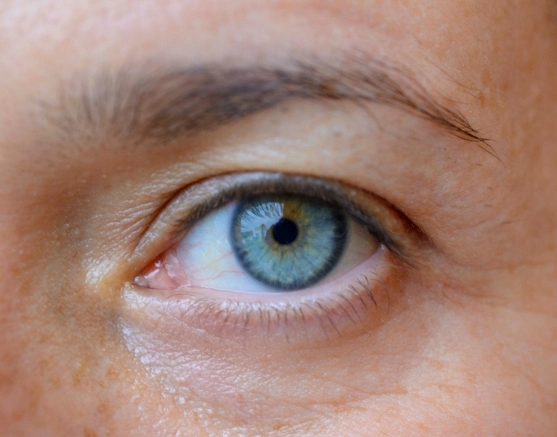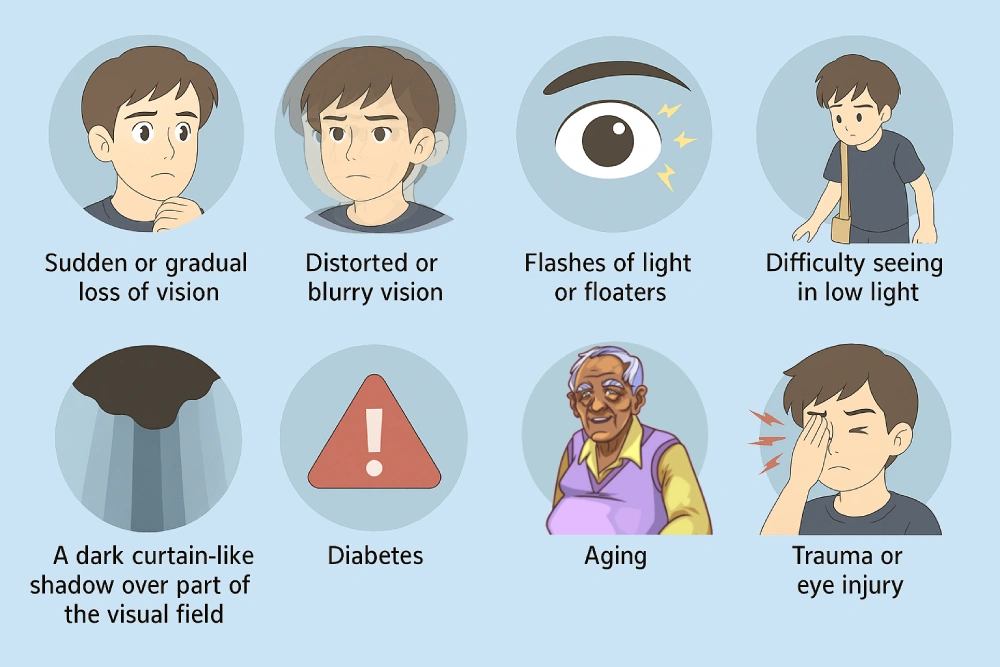
What is Retina Treatment?
Retina treatment focuses on diagnosing and managing diseases affecting the retina — the light-sensitive tissue at the back of the eye responsible for capturing images and sending them to the brain. Common retinal conditions include retinal detachment, diabetic retinopathy, age-related macular degeneration (AMD), and macular holes. Left untreated, these conditions can lead to vision loss or even blindness. Retina treatment may involve laser procedures, injections, vitrectomy surgery, or advanced imaging-based monitoring. Early detection plays a critical role in preserving vision and preventing complications.
Symptoms and Causes
Common symptoms of retinal disorders include:
- Sudden or gradual loss of vision
- Distorted or blurry vision
- Flashes of light or floaters
- Difficulty seeing in low light
- A dark curtain-like shadow over part of the visual field
Causes vary depending on the condition but may include:
- Diabetes (causing diabetic retinopathy)
- Aging (leading to macular degeneration)
- Trauma or eye injury
- Retinal tears or detachment
- Infections or inflammation of the eye
